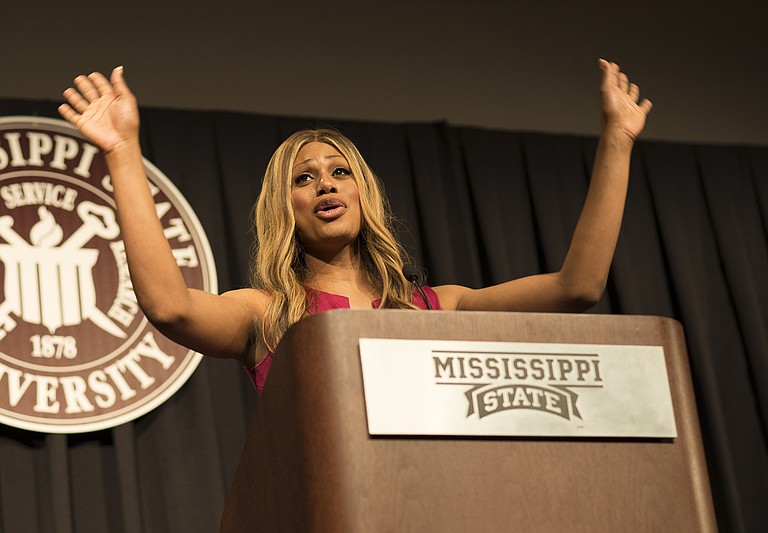Laverne Cox, a transgender Alabama native, has spoken across the country to universities such as Mississippi State in hopes of inspiring others through her experiences.
Wednesday, April 30, 2014
As the first transgender performer to have a recurring spot on a television series, Laverne Cox plays Sophia, a transgender woman who is in prison for credit-card fraud, in the wildly popular Netflix series, "Orange Is the New Black." In the role, she brings a new light to LGBTQ issues. Cox is originally from Mobile, Ala., and graduated from the Alabama School of Fine Arts. She began dancing when she was only 8 but did not begin acting until she attended Marymount Manhattan College in New York.
During her time off the set, Cox has been touring the country, and Mississippi State University was at the end of her tour in March. In an interview with the Starkville Free Press, the JFP's new sister publication, Cox shared her thoughts about Mississippi's Senate Bill 2681, or "Religious Freedom Restoration Act" bill, that many are concerned would clear the way for Jim Crow-type laws against LGBTQ residents.
Most poignantly, she gave advice to young people growing up under siege by such laws and attitudes in the Deep South—because she's been there. Here are come of her comments about SB2681 and the climate for LGBTQ people in the south. Here's a sampling of her thoughts and advice:
• "Girl, I've had a long day, and thinking of all that needs to happen here to overturn it (SB 2681) ... wow. That's scary."
• "In certain places, it's harder. It just is, and it's weird. You know, I'm from Alabama, and I felt like I had to leave out, and it's hard even in New York state. You know, we still don't have protections for transgender people statewide in New York. So, it's rough everywhere, really."
• "I think you should be writing about it ... and students should be talking about it here.... I think it's important that people know about it, and then people can mobilize. Once people know about issues they have to mobilize, but then it's like how do we get masses of people to care about certain issues, too; it's really a lot of the work. This is a hard one. I think we have to get the word out. I think the first thing is getting the word out so people will know and then we can start putting big pressure on Mississippi."
• "[M]y understanding is it's just really rough here. It's really rough. I really wouldn't know what to say because it seems so systematically engrained: the racism, the sexism, the transphobia and the homophobia."
• "What it feels like to me as well is that in the south particularly, but let's just say in the FOX News land, is that folks really don't have the facts. I think the information people are really getting is very filtered. So, there's not really a critical engagement in a way where people really have the correct information around these issues."
• "I think the bigger thing in the south, too, especially when you're using God as a way to take people's rights away, is that we have to critically engage with our religion when it comes to civil rights. As a trans woman of color, I feel like God made me this way and God loves me and that I'm here doing God's work. I think we need to change how we frame religion in relationship to civil rights and how we use it."
Comment at jfp.ms. Read Ariel's full interview at starkvillefreepress.com.

Comments
Use the comment form below to begin a discussion about this content.
Sign in to comment
Or login with:
OpenID